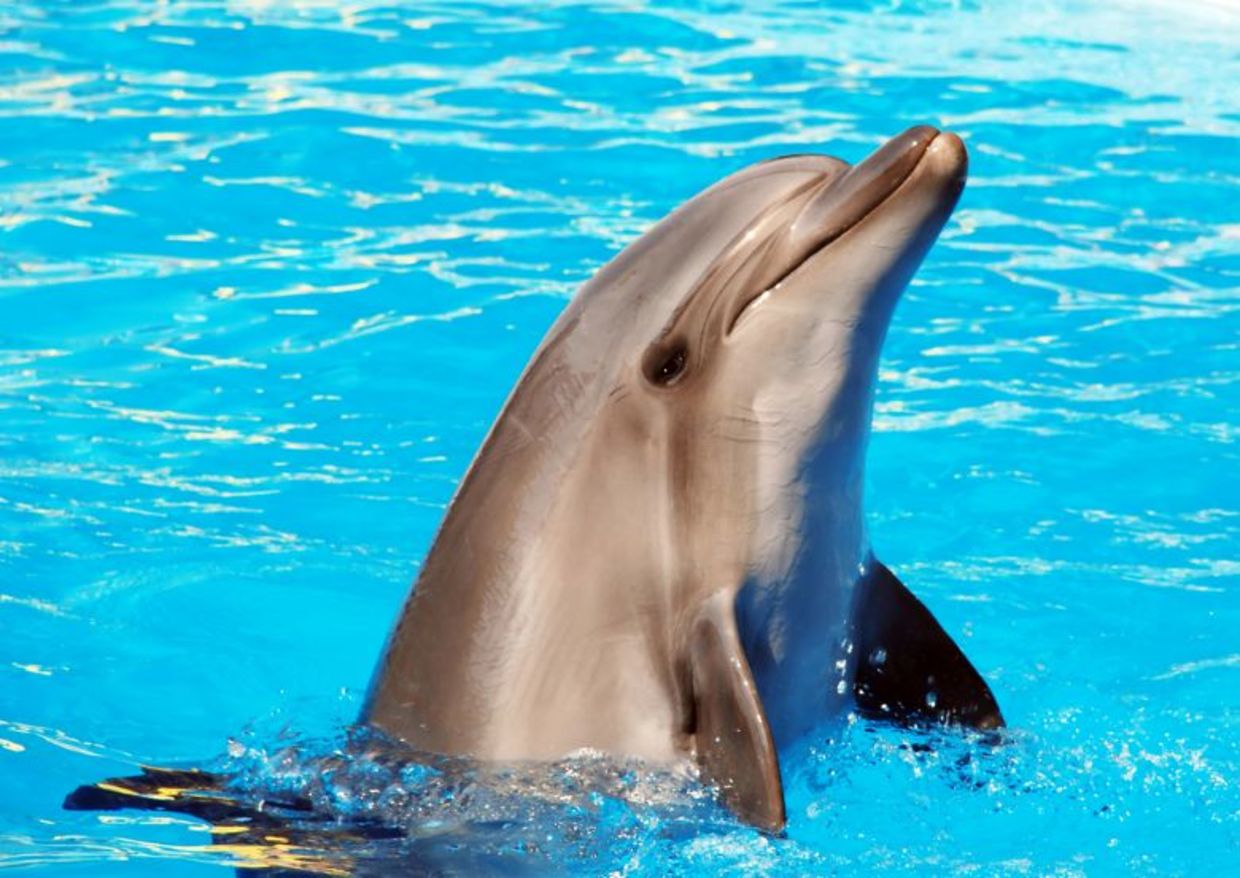
(FineShine / Shutterstock.com)
While so many are enchanted by seeing dolphins and other marine mammals frolicking in dolphinariums, members of the public are only starting to understand that these adorable creatures suffer in captivity when exploited for entertainment purposes, and are best left in the ocean, as Dolphin Project explains.
This is why animal welfare advocates and dolphin fans have been celebrating ever since the Mexico Senate, with the full support of the Chamber of Deputies, unanimously approved a country-wide ban on performances involving dolphins, seals and whales in Mexico’s circa 30 sea mammal entertainment facilities on June 20 2025.
As Mexico News Daily reports, this vote follows a three-year legislative campaign kickstarted by public outrage over animal care violations in what are increasingly referred to as the “dolphin prisons” in this industry.
The country’s president, Claudia Sheinbaum, made a point of prioritizing the new legislation to prevent further animal abuse, saying it would protect dolphins from captivity.
Triggering Episodes Have Helped Flip Public Opinion
Resistance by dolphinarium operators had delayed the implementation of an earlier revision of Mexico’s General Wildlife Law forbidding the use of marine mammals in shows or hands-on events with tourists.
But a number of events pushed dolphinariums back into the news. For instance, the newly-amended legislation has been labelled the “Mincho Law” after a video clip of a dolphin severely injured in a show at the Barceló Maya Grand Resort in the state of Quintana Roo some five years ago surfaced in early 1925. At the same time, the deaths of two other dolphins were also reported. This led to the closure of this facility, and a promise to “conduct inspections at all dolphinariums in the country to ensure the dignified treatment of the animals they house,” as a media release from Mexico’s Federal Attorney for Environmental Protection (Profepa) confirmed.
The ill-treatment of captive mammals in dolphinariums has been well documented. World Animal Protection News highlights that its investigation, “The Suffering Behind the Smile,” revealed several disturbing findings. These include that 300 dolphins have been exploited at facilities in Mexico in recent decades, with many of them showing signs of chronic stress, abnormal behaviors, and diseases related to confinement.
Whale and Dolphin Conservation (WDC) notes that scientific research shows how in captivity, these intelligent beings can’t behave naturally, are missing out on swimming the vast distances they do in the wild, and are forced to interact with tourists on repeat, with many drugged and depressed.
In Mexico, a public outcry against the evidence of suffering, and public education, eye-catching demonstrations, social media campaigns, and celebrity support, as PETA details, also drove rising support for a ban on dolphin and other marine mammal entertainment. Indeed, The Cool Down suggests that the legislative win in Mexico demonstrates the effectiveness of community-based environmental activism.
How the New Law Will Make a Splash for Dolphins
Mexico is home to some 350 captive dolphins, placing it among the top ten dolphinarium-operating countries.
As World Animal Protection News emphasizes, this landmark win for dolphins and animal protection means that no more dolphins and other marine mammals will be used in shows or swim-with experiences, there will be no more forced breeding in captivity, and dolphins already in captivity are mandated to be granted humane, lifetime care with substantial fines for noncompliance, while those housed in concrete tanks must be moved to roomier sea pens within eighteen months.
In addition, the ruling also prohibits the use of dolphins in therapy, entertainment, research, and any other activity unrelated to conservation.
Officials also promised to review the permits of all captive wildlife facilities.
As the International Marine Mammal Project observes, Mexico is now aligning with a growing group of countries, including Canada and France, that are phasing out or banning marine mammal captivity for entertainment. The project believes that a shift in public perceptions of dolphinariums is tangible: What was once considered wholesome family entertainment is increasingly seen as cruel and outdated, with several facilities shuttered in the USA and Europe because of this shift.
On hearing of the ruling, Mariel Tejeda, Director of captive marine mammal nonprofit, Empty the Tanks, said: “Today marks a historic moment. After years of advocacy, legislation now protects marine mammals, thanks to a consensus among environmental authorities, civil society, academia, and even industry. This is a step forward in a global transition away from animal abuse.”
YOU MIGHT ALSO LIKE:
These Adorable Amphibians are Getting a Helping Hand From Scientists
For This Boston Doctor, Caring For Local Women Comes Full Circle
Welcoming Western Pond Turtles Back to Yosemite National Park







